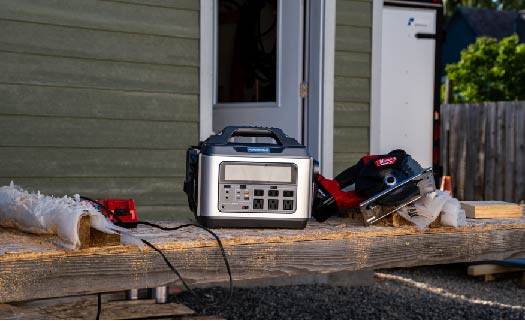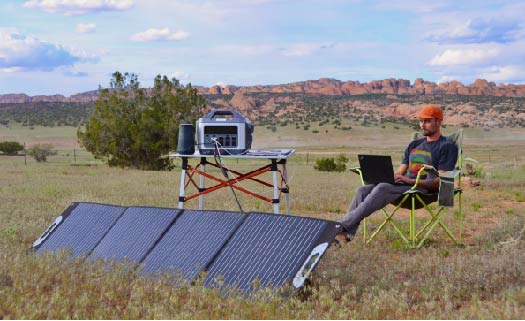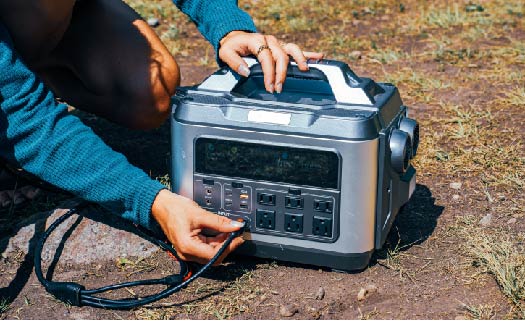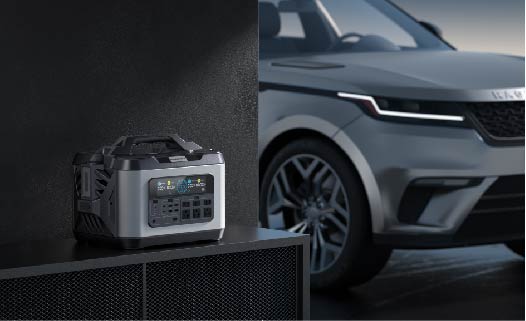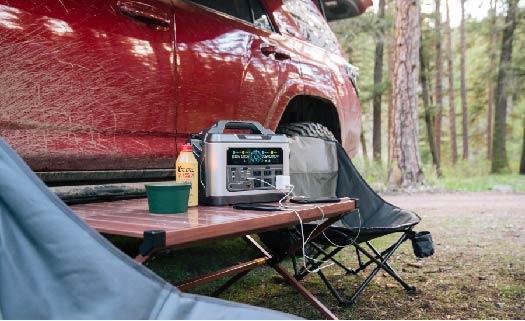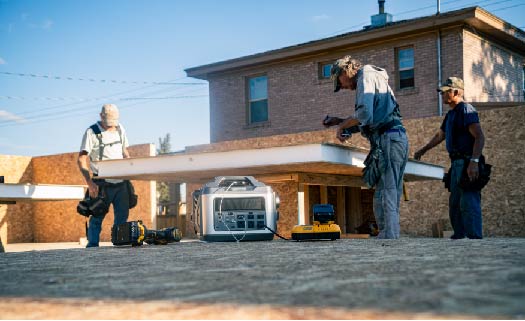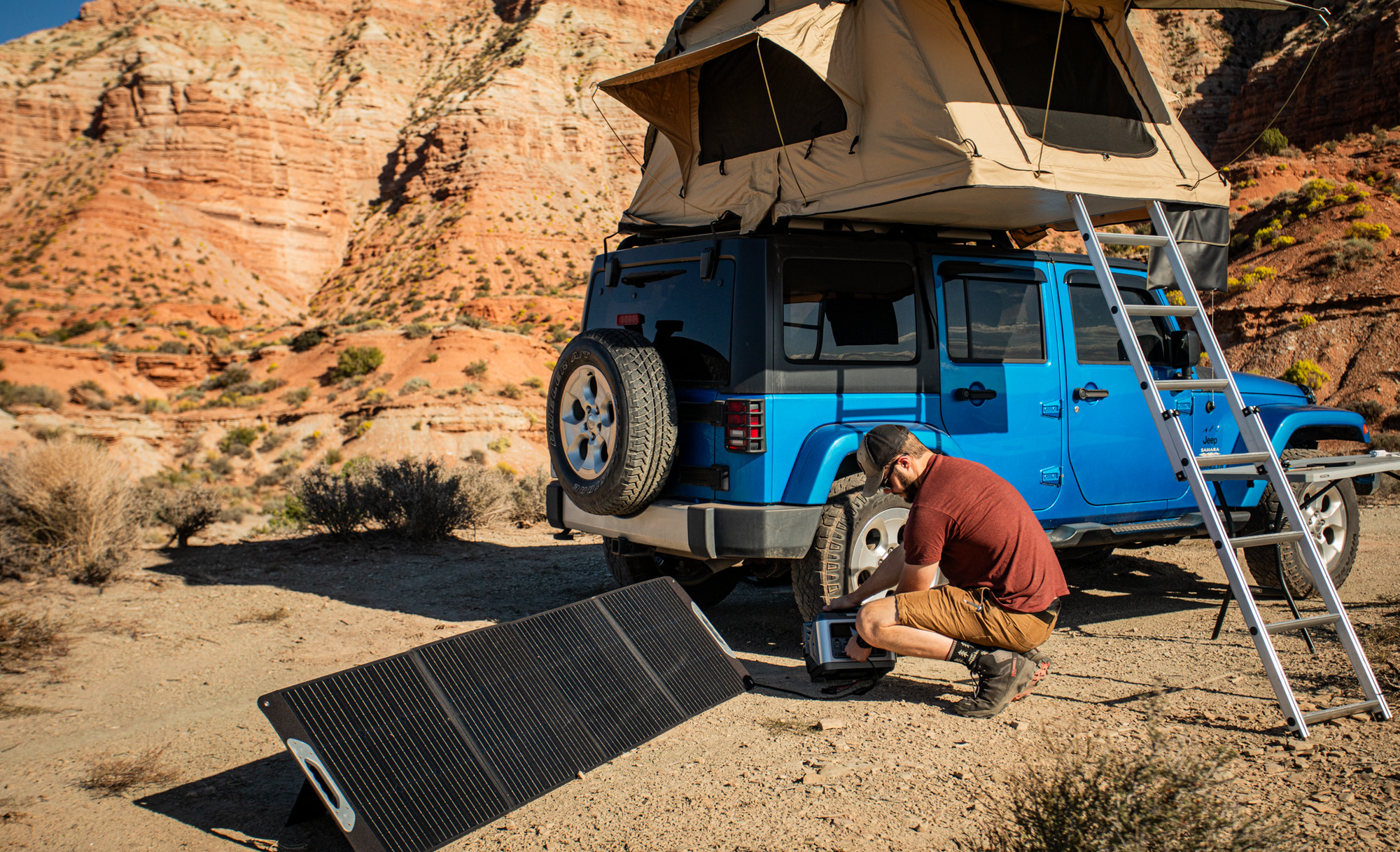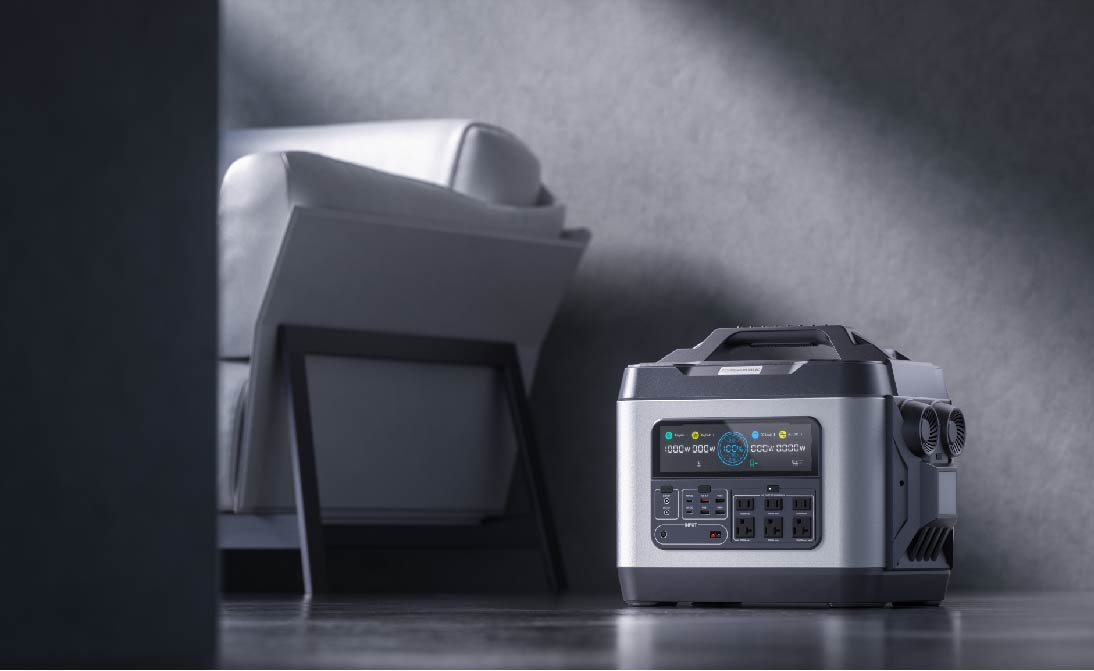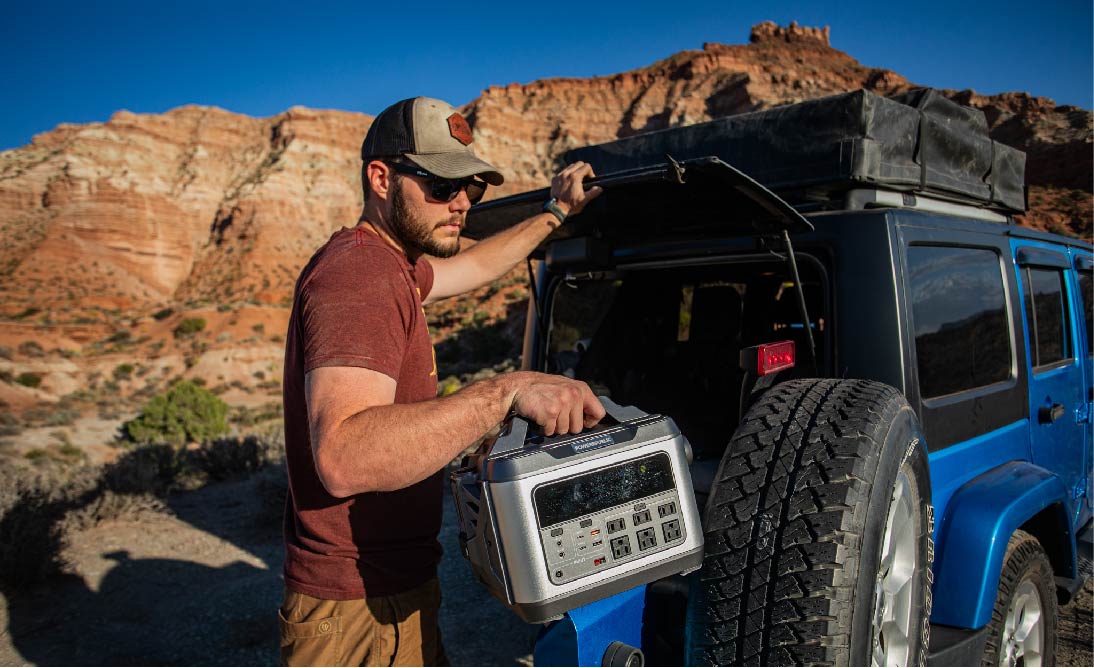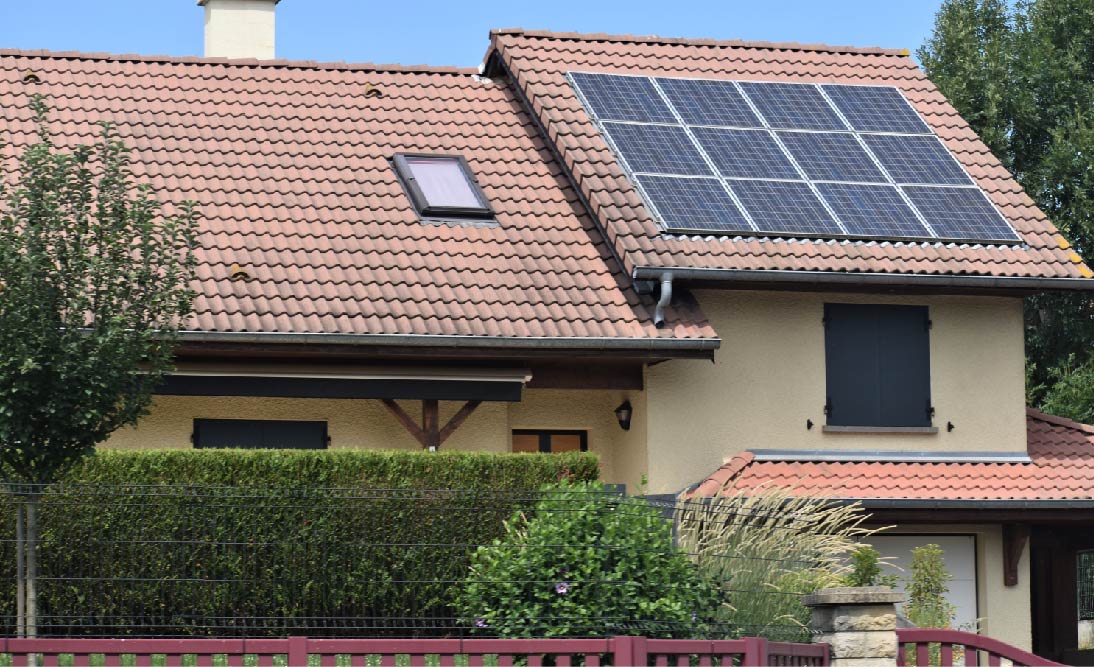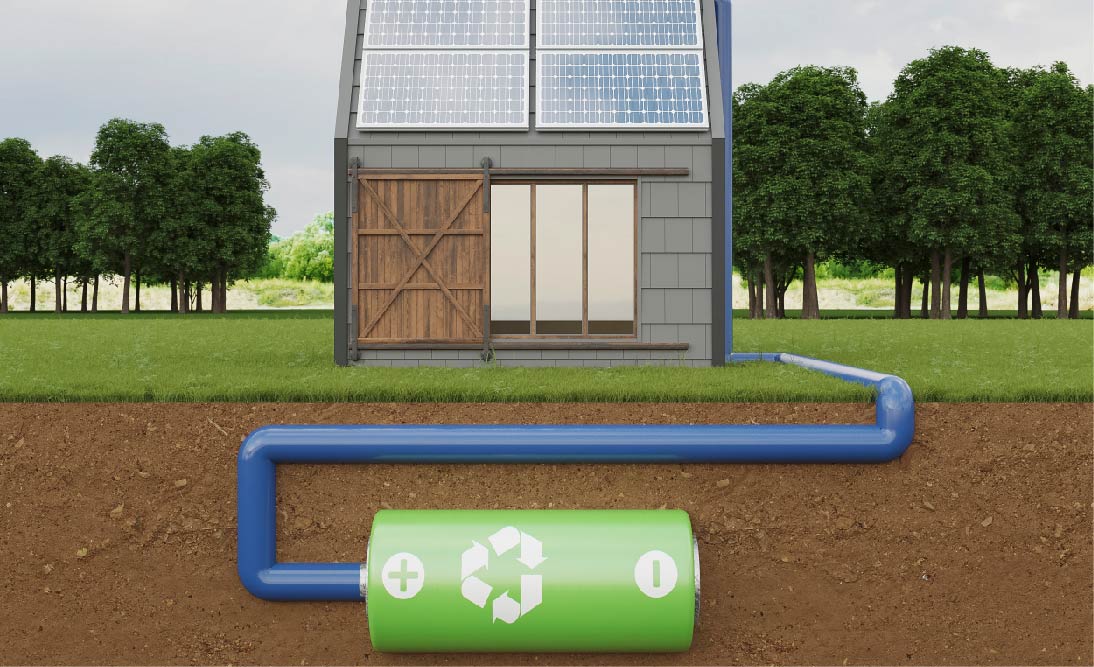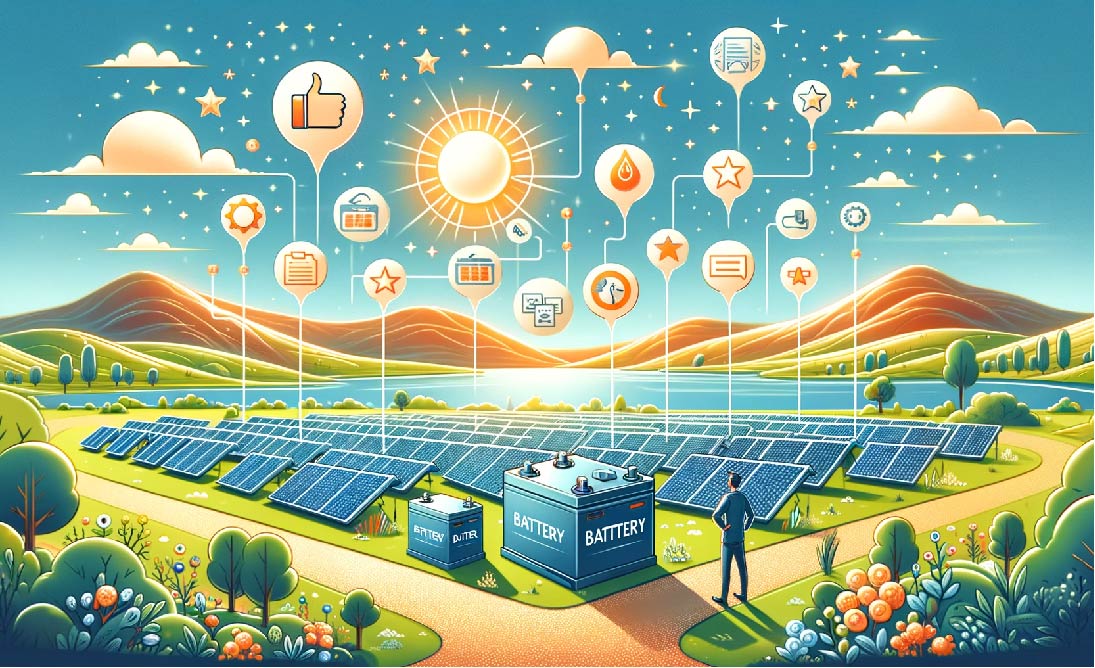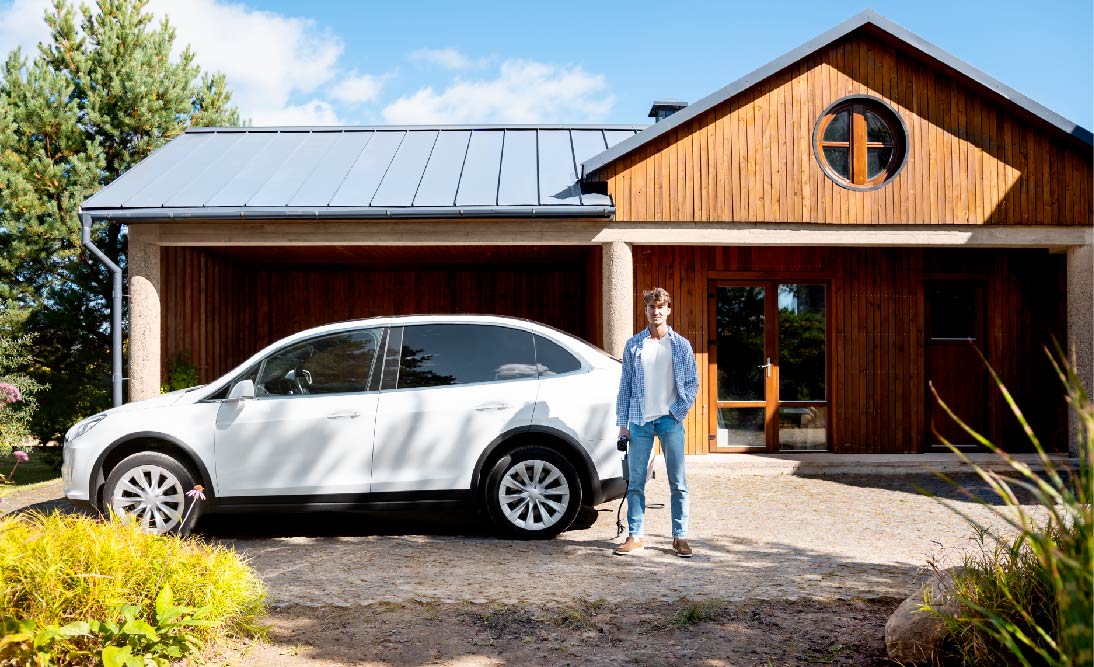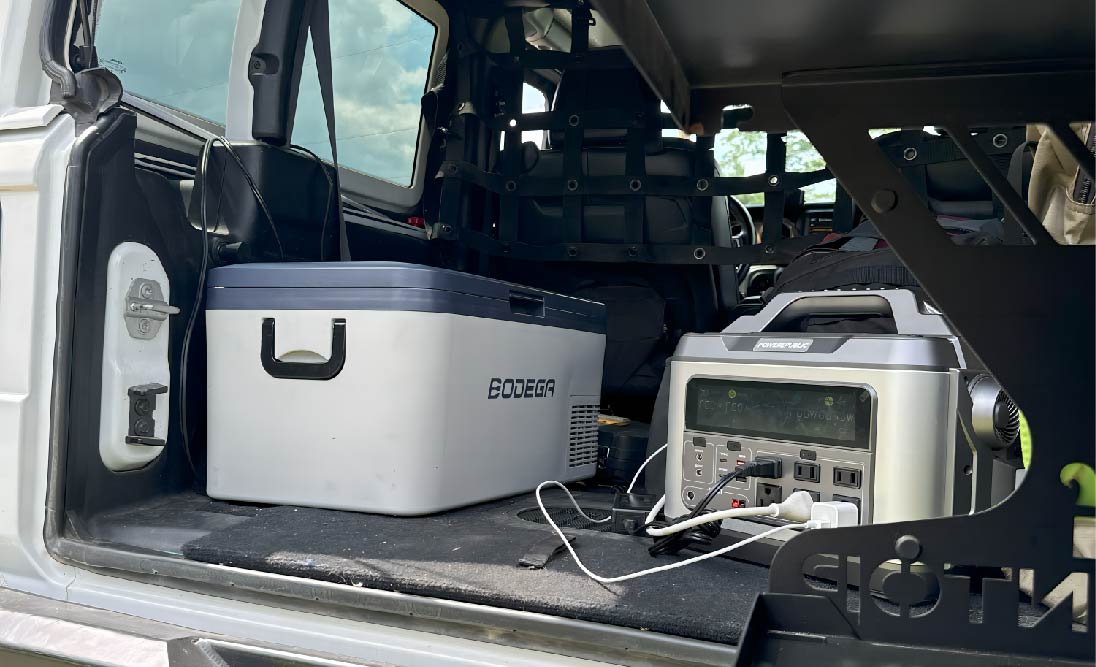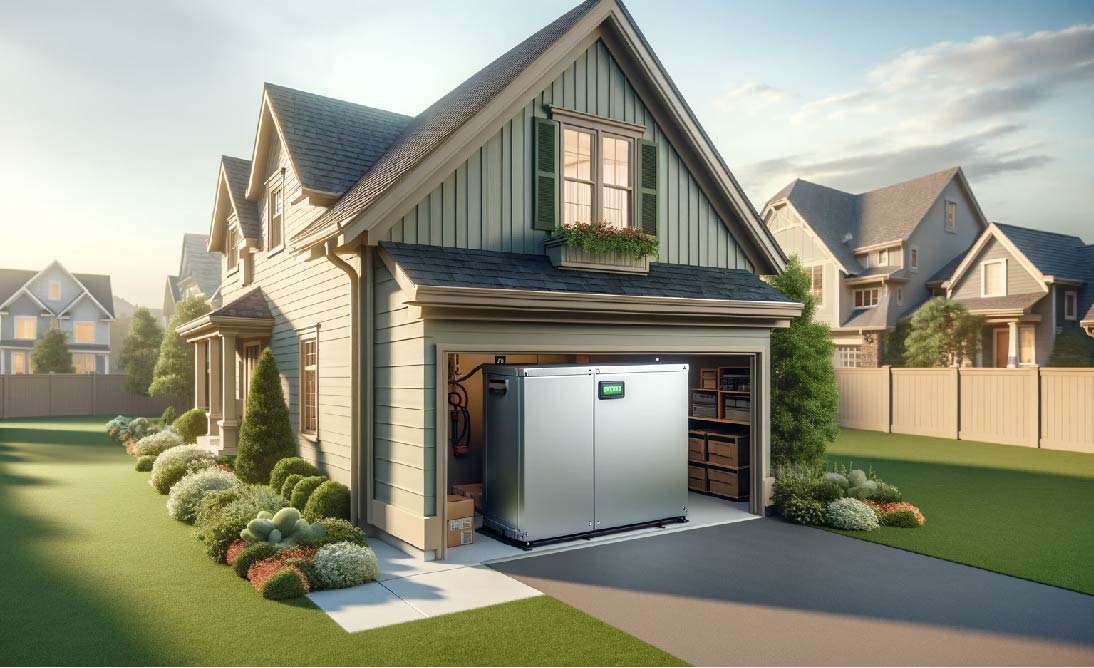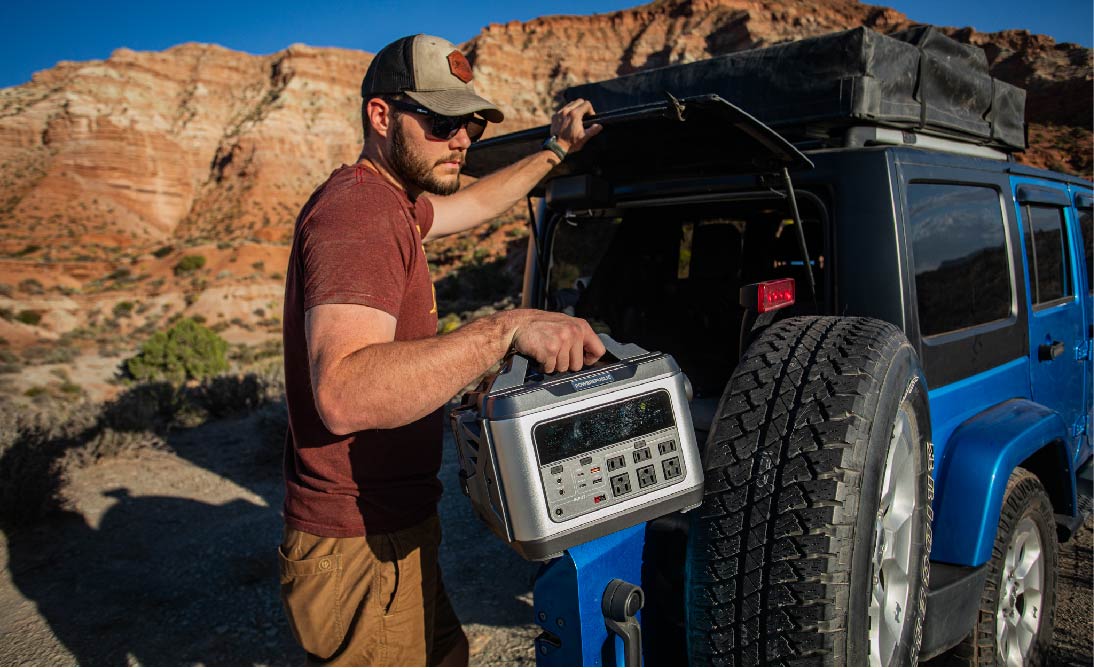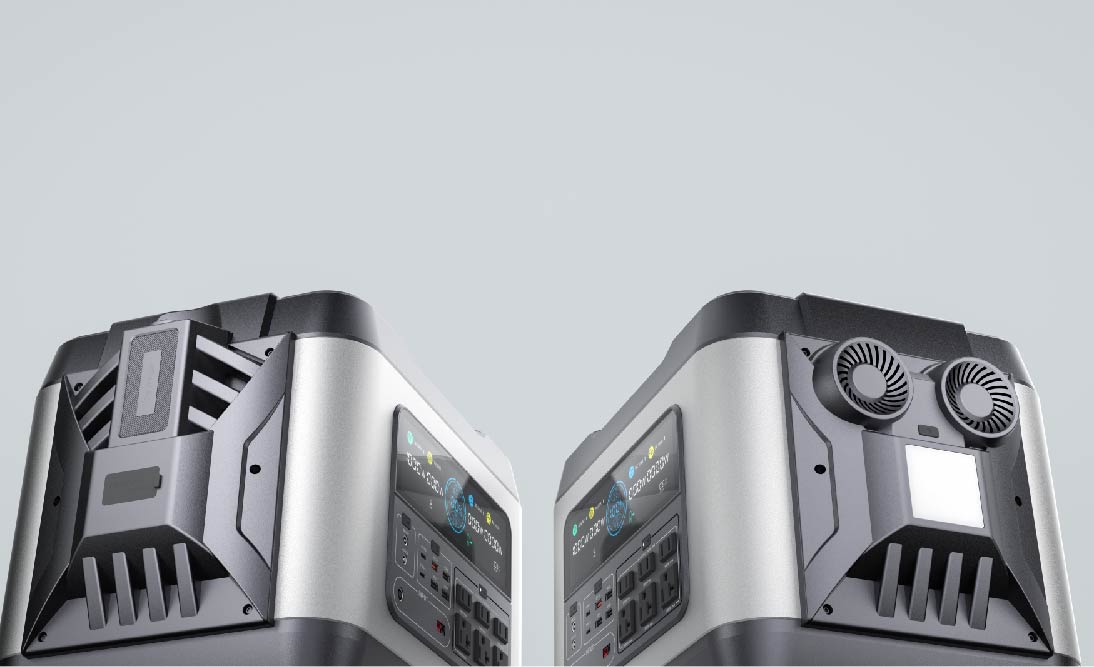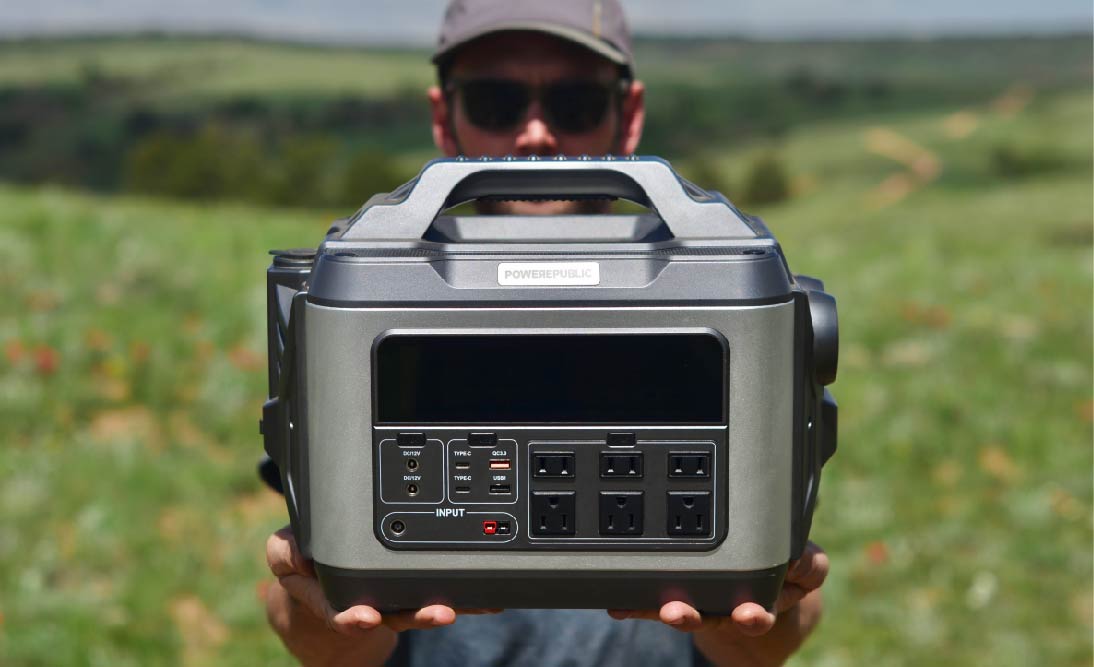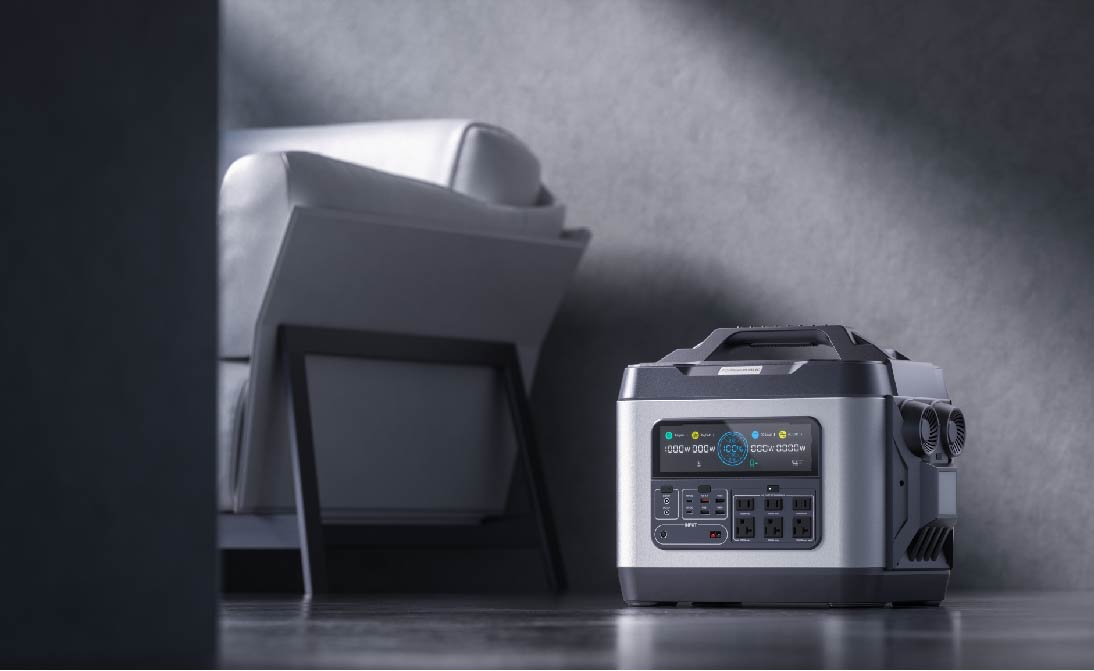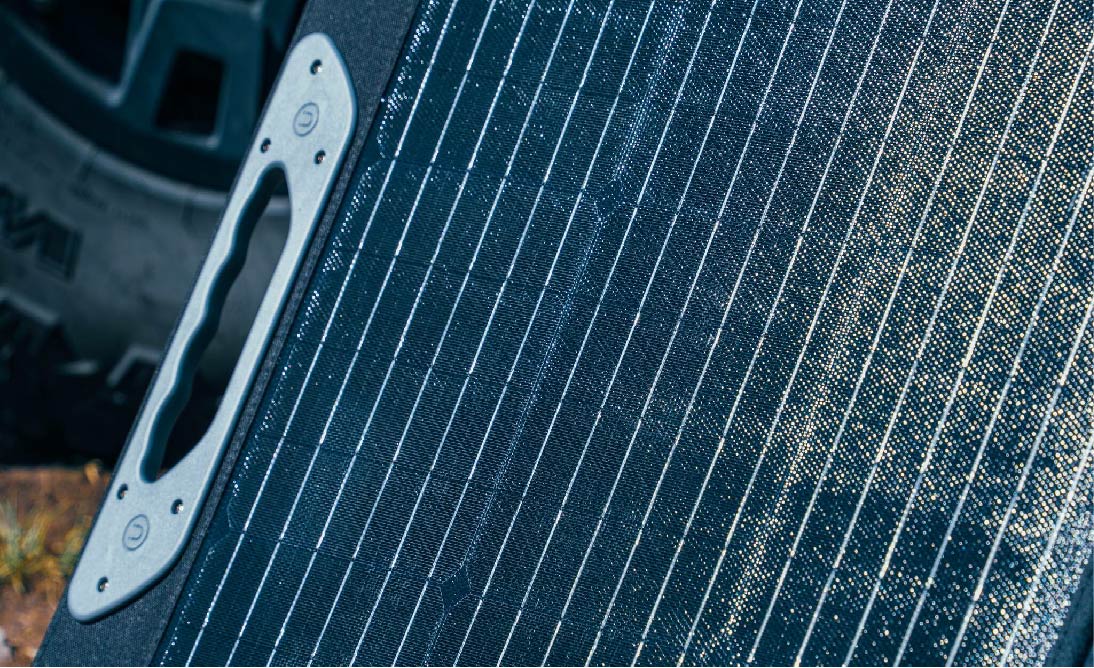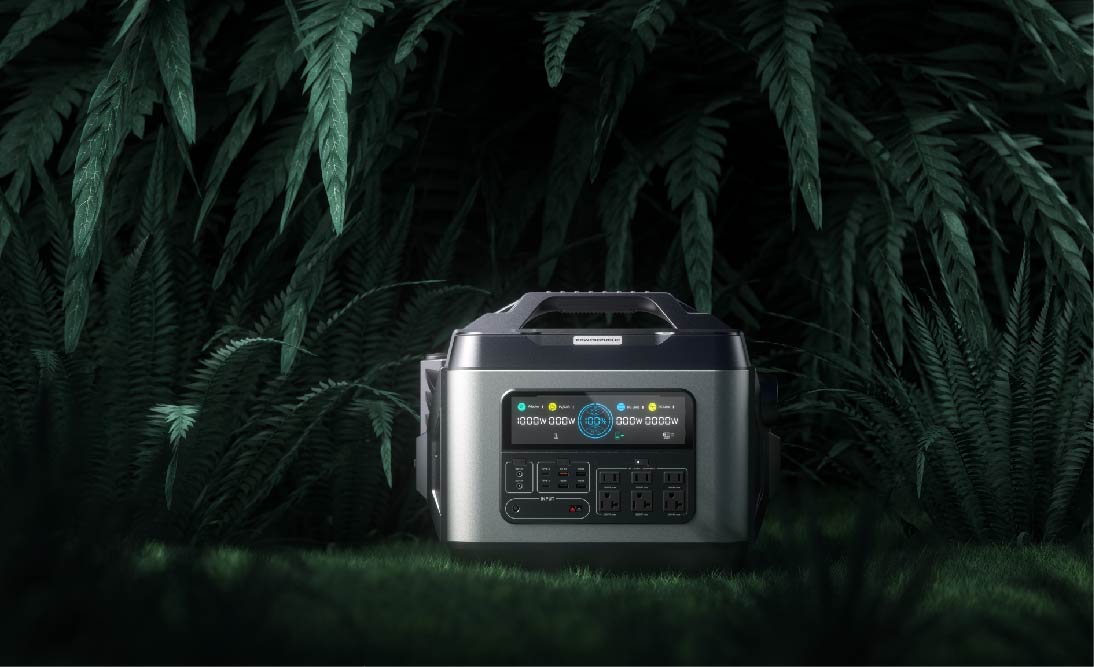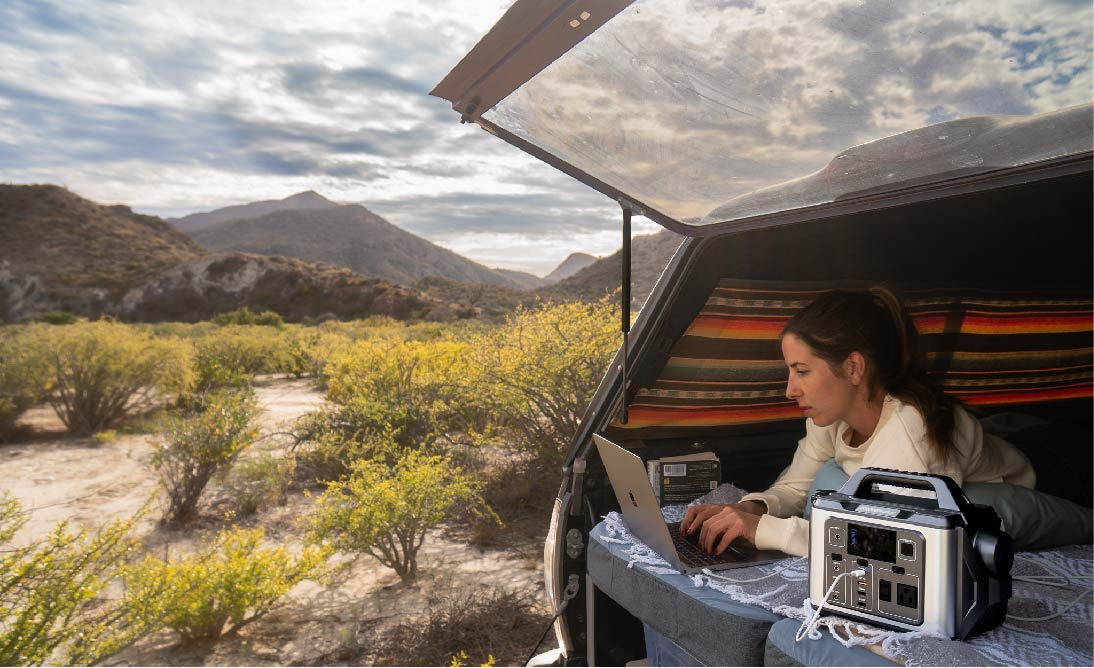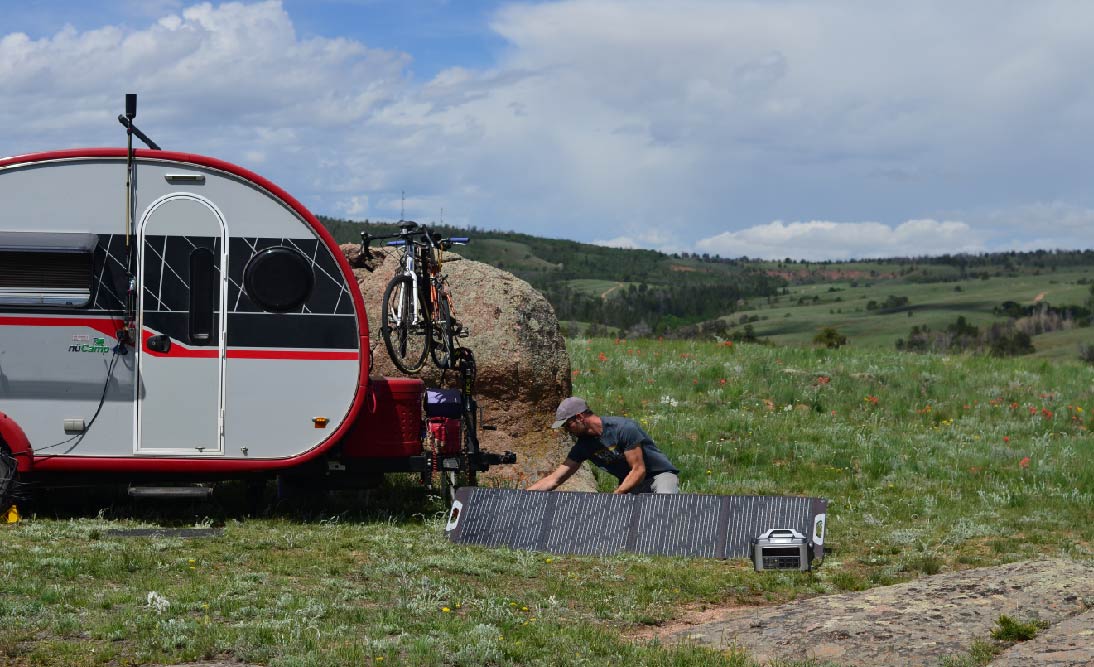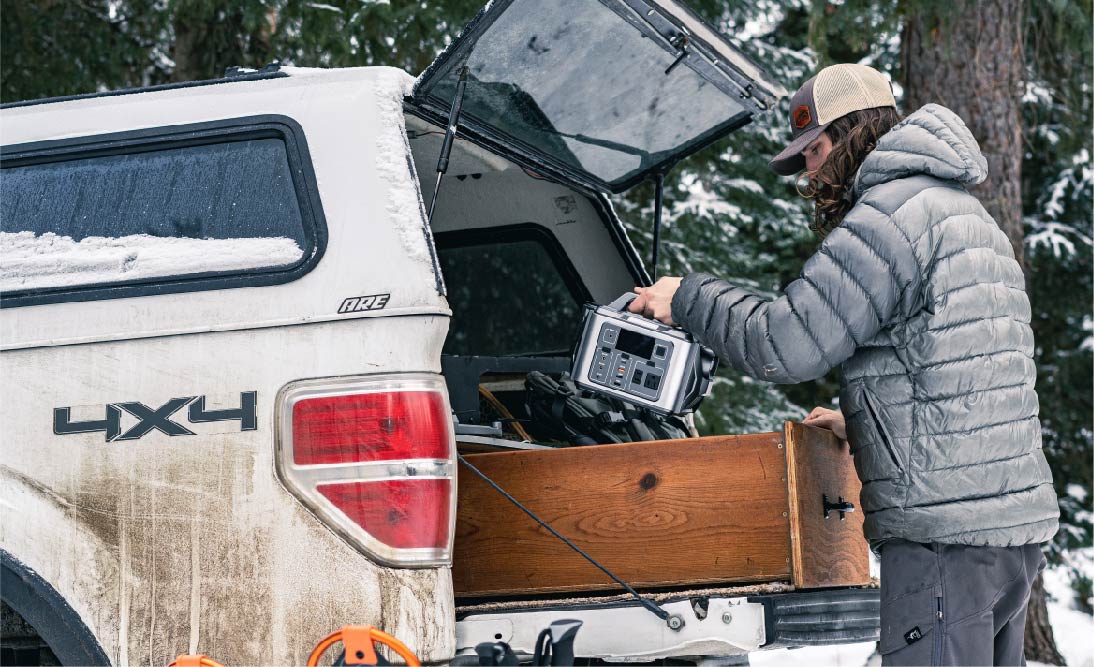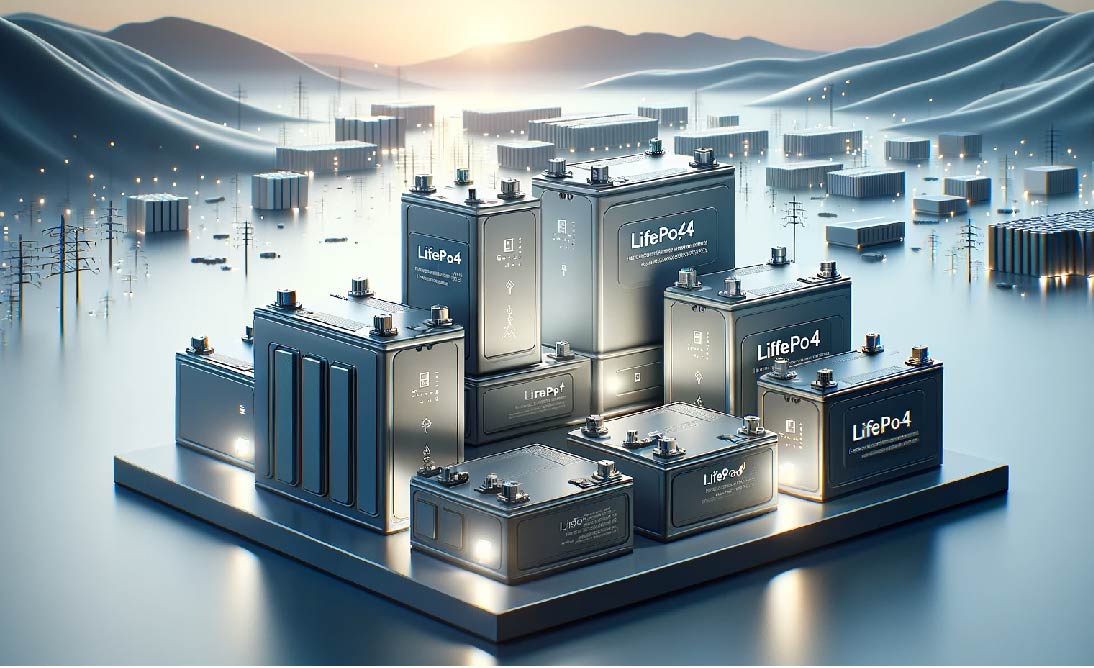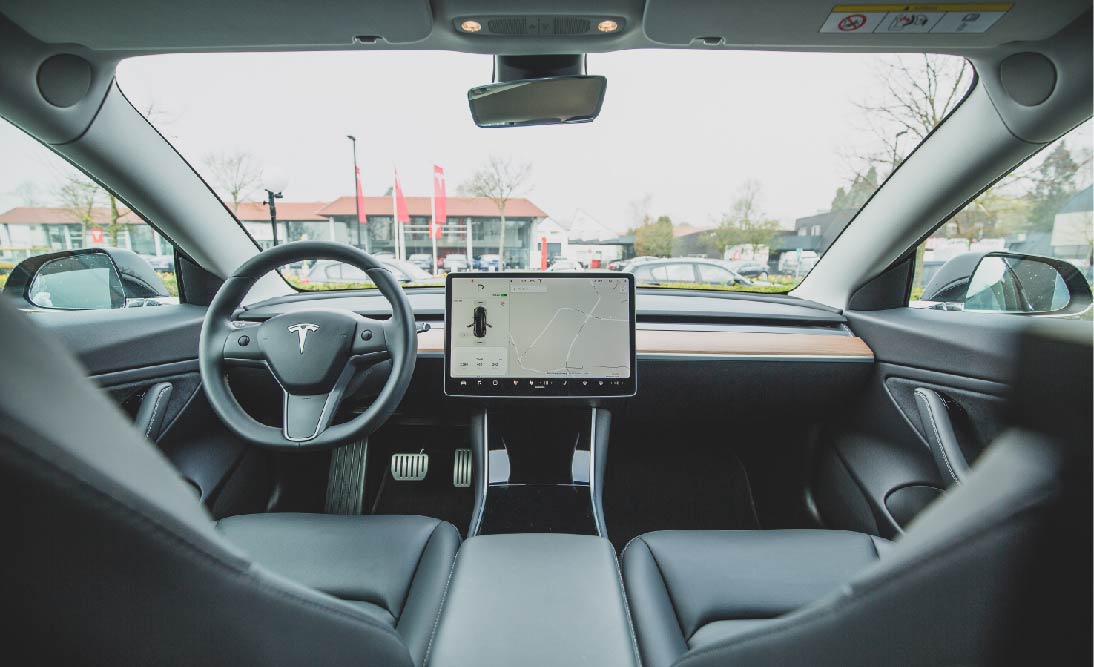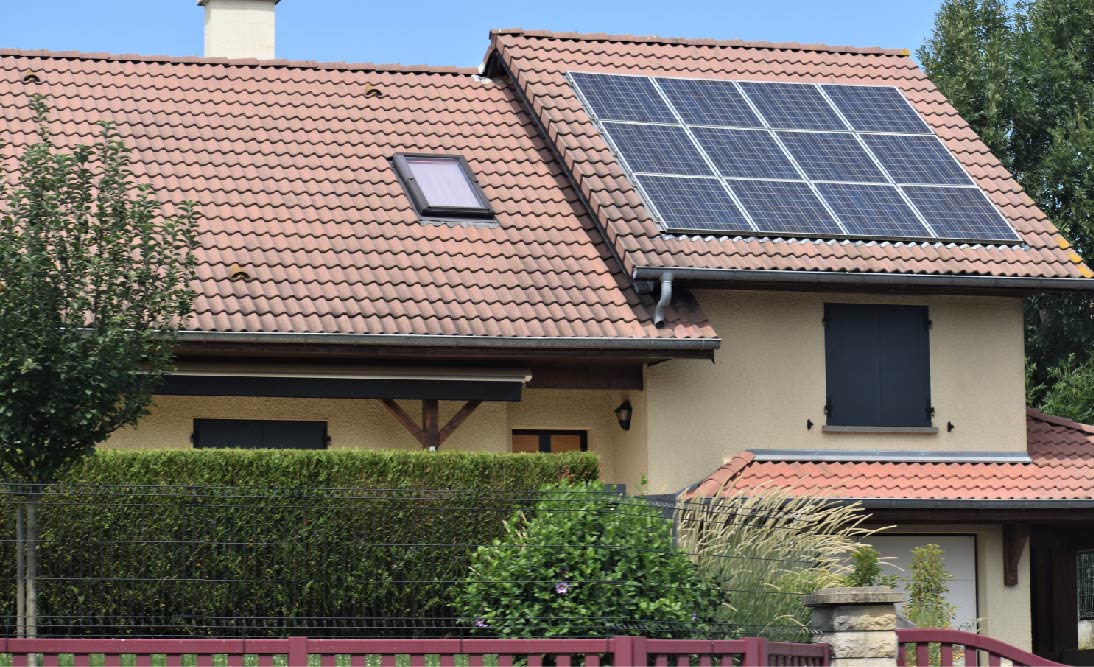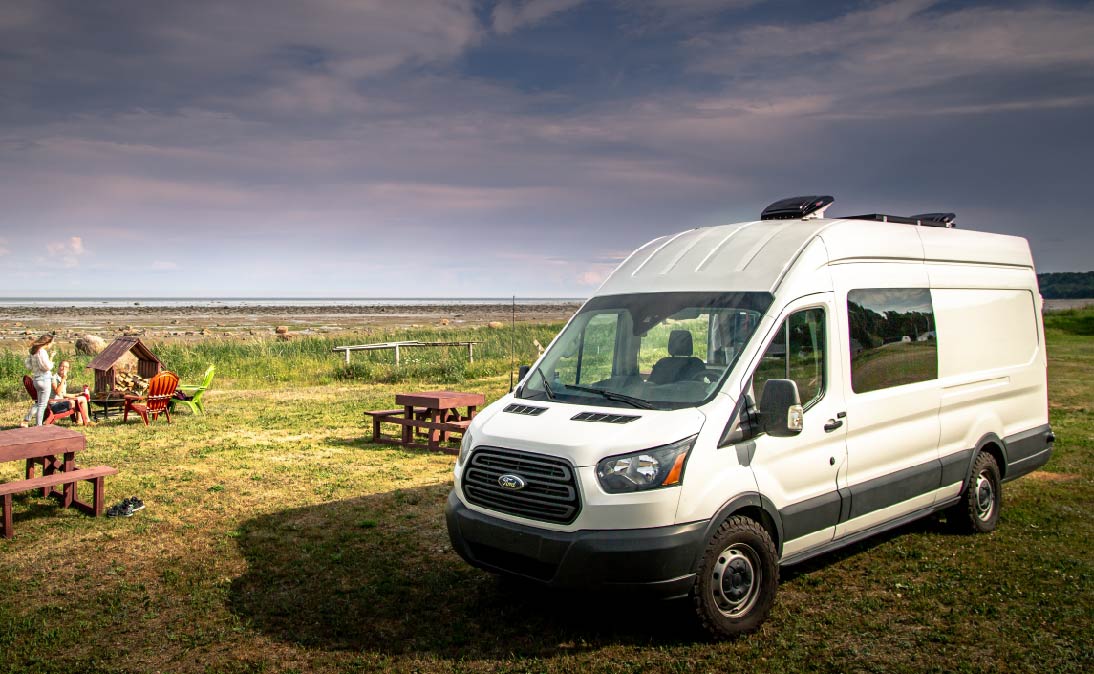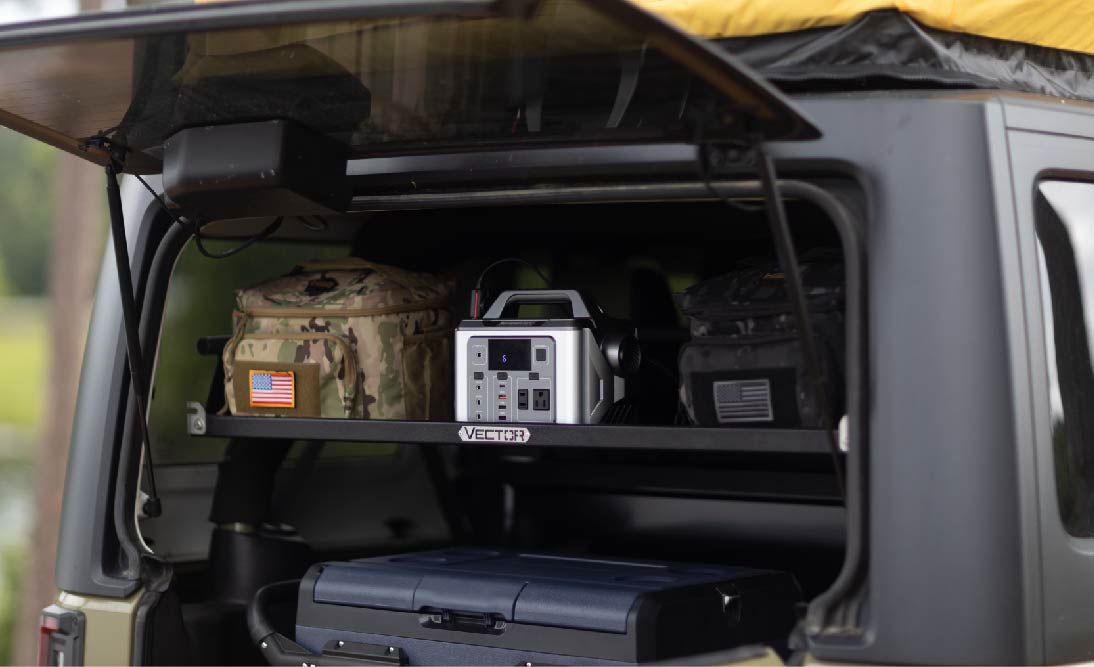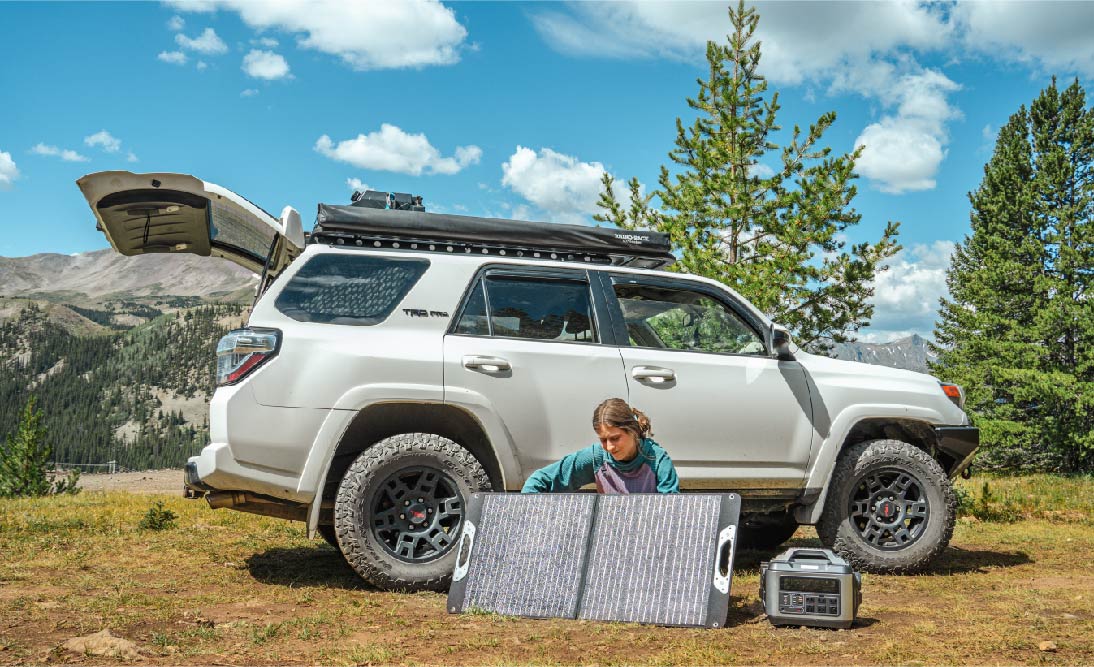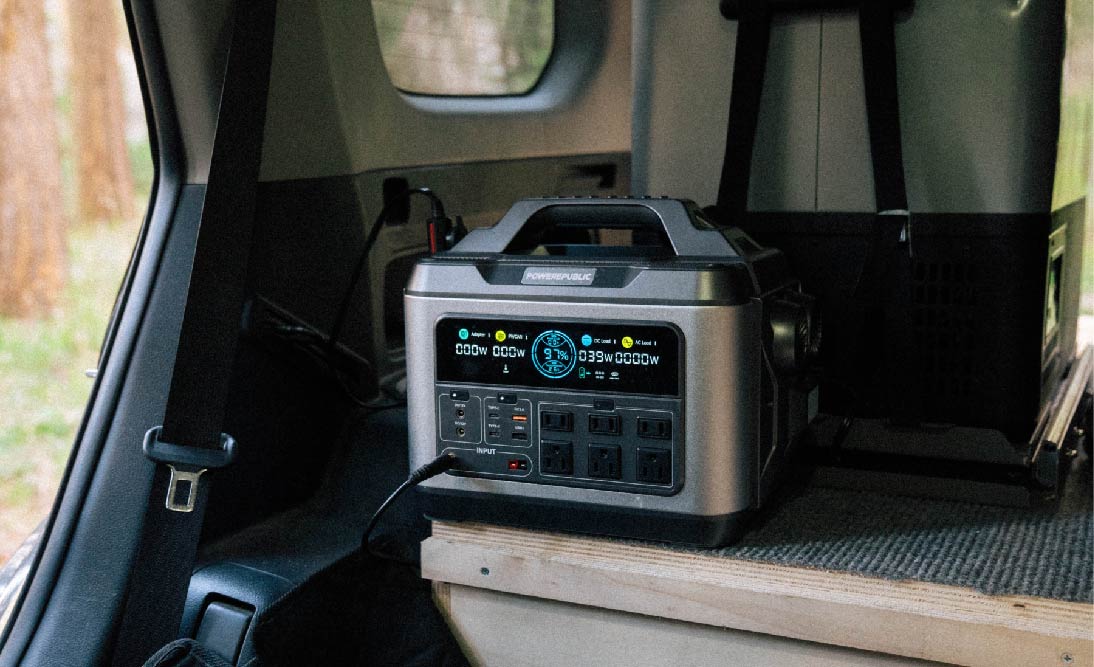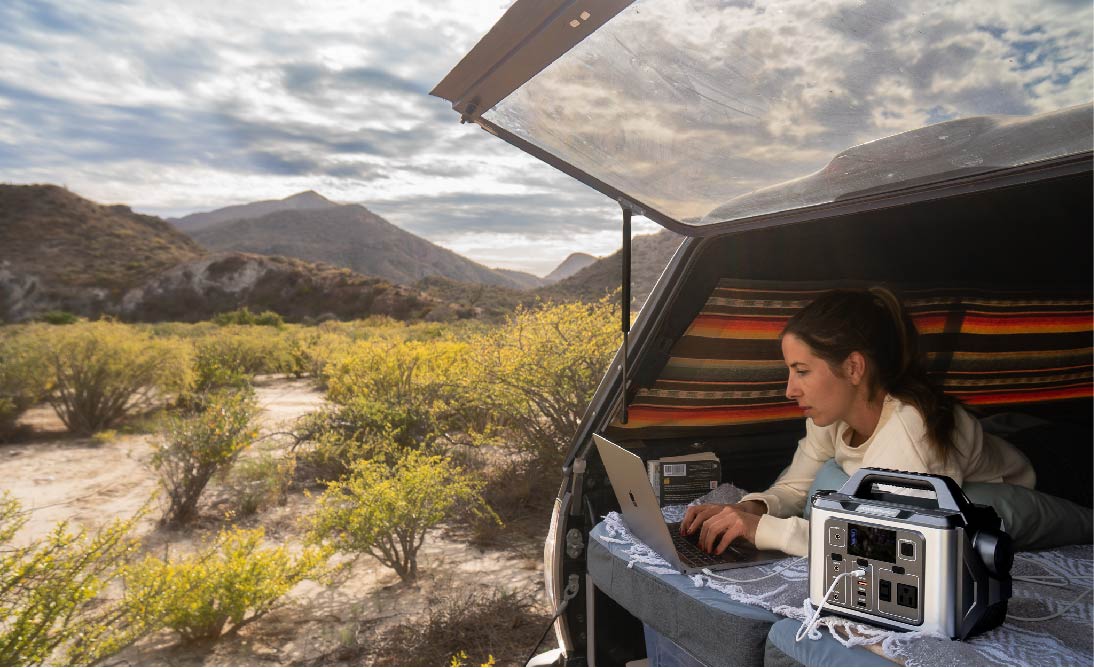Table of Contents:
-
For Long-Term Power Outages: How To Choose The Best Solar Generator For Home?
-
For Short-Term Power Outages: How To Choose The Best Solar Generator For Home?
In the face of unpredictable power outages, the quest for reliable and sustainable energy solutions becomes paramount. Homeowners increasingly turn to solar generators to illuminate their spaces when the grid falters, seeking the best solar generator for home use. This guide is a comprehensive exploration of solar generators, designed to empower you with the knowledge needed to make informed choices in navigating power challenges.
Delving into the solar generator overview, we’ll uncover the strengths and limitations inherent in these renewable energy sources. For long-term and short-term power outages alike, we’ll guide you in selecting the best solar generator for your home, emphasizing the importance of tailor-fitting solutions to the duration of outages. Our spotlight falls on the POWEREPUBLIC T2200 and T3000 as prime examples of the best solar generators for home use, providing insights into their capabilities and features. Furthermore, we address common queries in our FAQs, tackling doubts such as the effectiveness of solar generators and their potential to power entire houses.
Embark on this journey with us as we demystify the realm of solar generators, offering clarity and guidance for a resilient and sustainable home power solution.
Solar Generator Overview
What are they?
Solar generators stand as innovative solutions, harnessing sunlight to generate electricity for homes. As reliable and sustainable alternatives during power outages, these systems provide homeowners with the best solar generator for home use. Unlike traditional fuel-dependent generators, solar generators utilize photovoltaic panels to convert sunlight into a clean, eco-friendly power source.
Main Components and Functions
-
Solar Panels: Capture sunlight, initiating the energy conversion process.
-
Charge Controllers: Regulate and optimize the battery charging process.
-
Inverters: Transform direct current (DC) into alternating current (AC) for household appliance compatibility.
-
Batteries: Store surplus energy for use during low sunlight periods.

Type of Solar Generator
Solar generators come in various types, each catering to specific needs:
-
Portable Solar Generators: Compact and lightweight, exemplified by the POWEREPUBLIC T2200, the best solar generator for home use in emergencies or short-term needs.
-
Stationary Solar Generators: Larger units like the POWEREPUBLIC T3000, recognized as the best solar generator for home resilience, providing comprehensive and long-term power solutions.
Applications
-
Emergency Backup: Powers essential appliances during outages, ensuring uninterrupted daily activities with the best solar generator for home backup.
-
Off-Grid Living: Suited for remote locations without access to traditional power sources, emphasizing the best solar generator for home off-grid scenarios.
-
Sustainable Living: Reduces reliance on non-renewable energy sources, aligning with eco-friendly practices using the best solar generator for home sustainability.
Price Range
-
Portable Solar Generators: Priced between $200 to $700. Investing $400 in a portable model ensures immediate power during emergencies with the best solar generator for home emergencies.
-
Stationary Solar Generators: Priced from $1,000 to $3,000, providing higher capacity for extended and sustained power supply, making them the best solar generators for home long-term solutions. If opting for the POWEREPUBLIC T3000 at $2,999, the upfront investment ensures a reliable and robust solution, making it the best solar generator for home resilience over the long term.
Strengths and Limitations of Solar Generators
Strengths
Renewable Energy Source
-
Solar generators tap into the abundant and renewable energy of the sun. This characteristic positions them as a sustainable and eco-friendly power solution for homes, reducing dependence on non-renewable resources. Choosing the best solar generator for home use aligns with a commitment to sustainable living.
Cost-Efficiency Over Time
-
While the upfront costs can be substantial, solar generators offer significant long-term cost savings. Consider a stationary solar generator like the POWEREPUBLIC T3000, priced at $2,999. Over its lifespan, the cost per kilowatt-hour (kWh) becomes notably lower compared to traditional fuel-dependent generators, making them the best solar generators for home resilience.
-
Example Calculation: If the T3000 produces 20,000 kWh over its lifespan, the cost per kWh would be $0.10, making it a cost-efficient choice in the long run.
Reduced Environmental Impact
-
Solar generators produce clean energy without emitting harmful pollutants. This reduction in environmental impact contributes to sustainable practices, making them the best solar generators for home sustainability.
-
Example Comparison: A traditional generator emits a certain amount of carbon dioxide per kWh generated, contributing to air pollution. Solar generators eliminate these emissions, promoting a cleaner and healthier environment.

Limitations
Weather Dependency
-
The efficiency of solar generators is weather-dependent, particularly during cloudy days or nighttime. This can affect their performance and make them less reliable during extended periods without sunlight, posing a challenge to their role as the best solar generators for home resilience.
-
Example Calculation: On a cloudy day, a solar generator with a 1000-watt capacity may produce only 30% of its full capacity, impacting the available energy during such weather conditions.
Upfront Installation Costs
-
The initial investment in solar generators, especially for larger models like the POWEREPUBLIC T3000, may be a barrier for some homeowners. Despite being recognized as the best solar generators for home sustainability, the upfront costs can deter adoption.
-
Example Consideration: While the T3000 may have an upfront cost of $2,999, various financing options, tax credits, and government incentives can make solar generators more accessible and offset initial expenses.
Storage Limitations during Prolonged Outages
-
Solar generators rely on battery storage for energy during periods of low sunlight. Prolonged outages exceeding the battery capacity may limit their ability to provide continuous power, affecting their effectiveness as the best solar generators for home resilience.
-
Example Scenario: If a stationary solar generator has a battery capacity of 10 kWh and the outage lasts for more than a day, critical appliances may experience interruptions due to insufficient stored energy.
Understanding these strengths and limitations empowers homeowners to make informed decisions, ensuring they choose the best solar generators for their specific needs and circumstances. While solar generators offer remarkable benefits, acknowledging potential challenges is crucial for maximizing their effectiveness in providing a resilient and sustainable home power solution.
For Long-Term Power Outages: How To Choose The Best Solar Generator For Home?
In preparing for prolonged power outages, selecting the best solar generator for the home becomes a strategic decision that involves considering various factors. Tailoring the solar generator to meet the specific needs of your household is crucial for ensuring a sustained and reliable power supply.

Here's a detailed process for making the optimal choice:
Assessing Energy Needs
-
Calculate your daily energy consumption by assessing the wattage of essential appliances.
-
Consider long-term needs, such as refrigeration, heating, and medical equipment, to determine the required capacity.
-
Example Calculation: If essential appliances collectively require 2000 watts per day, accounting for an additional 20% for efficiency, the daily energy needs would be 2400 watts or 2.4 kWh.
Determining Battery Capacity
-
Estimate the required battery capacity based on the calculated daily energy needs and the desired backup duration.
-
Factor in the average sunlight hours in your location to ensure adequate recharging during the day.
-
Example Calculation: If aiming for 48 hours of backup and your daily energy needs are 2.4 kWh, the minimum battery capacity required would be 115.2 kWh (2.4 kWh x 48 hours).
Considering Solar Panel Capacity
-
Evaluate the solar panel capacity needed to recharge the batteries within a reasonable time frame.
-
Factor in the efficiency of the solar panels and potential shading or weather issues.
-
Example Calculation: If your solar generator needs to recharge the batteries within 6 hours of sunlight, and your daily energy needs are 2.4 kWh, the required solar panel capacity would be 400 watts (2.4 kWh / 6 hours).
Examining Inverter Power Rating
-
Ensure the inverter has sufficient power to handle the peak load of your essential appliances.
-
Consider a pure sine wave inverter for compatibility with sensitive electronics.
-
Example Consideration: If your highest-rated appliance requires a surge power of 1500 watts, choose an inverter with a continuous rating of at least 1500 watts.
Evaluating Durability and Building Quality
-
Opt for solar generators with robust construction and durable components, especially if intended for long-term use.
-
Check the warranty and lifespan of key components such as batteries and solar panels.
Comparing Costs Over the Lifespan
-
Evaluate the total ownership cost over the solar generator's expected lifespan.
-
Consider the long-term cost-efficiency, factoring in maintenance, replacement parts, and potential upgrades.
-
Example Consideration: If a solar generator has a higher upfront cost but offers better efficiency and longer lifespan, it may result in lower costs per kWh over time.
Exploring Financing and Incentives
-
Investigate available financing options, tax credits, and government incentives to make the solar generator more financially accessible.
-
Consider the potential return on investment (ROI) over an extended period.
-
Example: Utilizing a 30% federal tax credit on a $3000 solar generator reduces the effective cost to $2100.
Choosing the best solar generator for long-term power outages involves a careful balance of energy needs, storage capacity, and overall system efficiency. Considering these factors, you can make an informed decision ensuring a resilient and sustainable power solution for your home. Remember to prioritize the best solar generator for home resilience throughout the decision-making process.
For Short-Term Power Outages: How To Choose The Best Solar Generator For Home?
When addressing short-term power outages, the selection of a solar generator tailored to immediate needs becomes crucial. Here's a detailed guide on choosing the best solar generator for home use during short-term disruptions, emphasizing efficiency and rapid power availability:
Quick Energy Assessment
-
Identify and prioritize essential appliances needed during short outages.
-
Calculate the total wattage of these appliances to determine the minimum solar generator capacity required.
-
Example Calculation: If essential appliances collectively require 1000 watts, a solar generator with a capacity of at least 1200 watts would provide a safety margin.
Swift Recharge Capability
-
Opt for a solar generator with a higher solar panel capacity to ensure rapid recharging.
-
Consider models with MPPT (Maximum Power Point Tracking) charge controllers for efficient energy extraction from solar panels.
-
Example Consideration: If your solar generator needs to recharge within 4 hours of sunlight, and your daily energy needs are 1000 watts, a solar panel capacity of 400 watts ensures quick replenishment (1000 watts / 4 hours).
Portable and Easy to Set Up
-
Prioritize portability, especially for short-term needs, to easily move the solar generator where power is required.
-
Choose models with user-friendly designs and quick setup features.
-
Example Consideration: A portable solar generator like the POWEREPUBLIC T2200, priced at $1,799, offers convenience and immediate power during short outages.
Battery Storage Adequacy
-
Assess the battery capacity to meet the intended duration of the short-term outage.
-
Consider lithium-ion batteries for higher energy density and faster charging.
-
Example Calculation: If the intended backup duration is 24 hours and your daily energy needs are 1000 watts, a battery capacity of 24 kWh ensures continuous power (1000 watts x 24 hours).
Inverter Capacity for Peak Loads
-
Ensure the inverter has sufficient capacity to handle the peak loads of essential appliances.
-
Consider models with surge capacity to accommodate the initial power spikes.
-
Example Consideration: If your highest-rated appliance requires a surge power of 800 watts, choose an inverter with a continuous rating of at least 1000 watts.

Cost-Effectiveness for Short-Term Use
-
Evaluate the upfront cost of the solar generator about its capacity and features.
-
Consider models priced between $200 to $700, ensuring cost-effectiveness for short-term power needs.
-
Example: A portable solar generator priced at $300, providing immediate power during short outages, offers a cost-effective solution for short-term needs.
User-Friendly Monitoring and Control
-
Choose solar generators with user-friendly interfaces for easy monitoring and control.
-
Look for features like LCDs and mobile app compatibility for real-time insights.
Availability of Quick Financing
-
Explore financing options or promotions that make the solar generator more accessible.
-
Take advantage of any available discounts or limited-time offers.
-
Example: Utilizing a 12-month financing option with zero interest can make a $600 solar generator more budget-friendly, costing only $50 per month.
By considering these factors, you can efficiently select the best solar generator for short-term power outages, ensuring immediate and reliable power availability for your home. Remember to prioritize the best solar generator for home use in emergencies throughout the decision-making process.
Best Solar Generator For Home: POWEREPUBLIC T2200 and T3000
From the information above, we understand that solar generators can serve both long-term and short-term power outages, depending on your location. In general, a professional solar generator system would be the optimal choice for extended power outages, while a portable solar generator is ideal for shorter durations.
For those seeking the best solar generator for home use during short-term power outages, we recommend the POWEREPUBLIC T2200 and T3000 solar generators.

T2200 Solar Generator
-
2200W running power and 4500W surge power
-
2240Wh battery capacity
-
15 output ports for various devices and home appliances
-
LiFePO4 batteries for enhanced safety and longer lifespan
-
Aluminum-alloy body for durability
-
User-friendly LCD screen for monitoring
-
Capable of powering 90% of electronic devices and home appliances
-
Usable while charging
T3000 Solar Generator
-
3000W running power and 6000W surge power
-
3200Wh battery capacity
-
15 output ports for various devices and home appliances
-
LiFePO4 batteries for enhanced safety and longer lifespan
-
Aluminum-alloy body for durability
-
User-friendly LCD screen for monitoring
-
Capable of powering 95% of electronic devices and home appliances
-
Usable while charging
Please note:
-
To estimate the working time of each model, use the formula: Duration(h) = Capacity of the Solar Generator(Wh) * 0.85(conversion rate) / Total power of your devices and appliances(W). For example, if you want to power a 100W TV, an 800W refrigerator, and 20W LED lights using a T3000 solar generator, the working time would be: 3200Wh * 0.85 / (100W + 800W + 20W) = 2.95 hours.
-
To compare the two models, visit our Compare Page for more details.
FAQ I: Are Solar Generators Any Good?
Solar generators are indeed a valuable and efficient source of power, especially in certain scenarios.
Here are some key points illustrating why solar generators are considered good:
-
Renewable and Sustainable: Solar generators harness energy from the sun, a renewable source, making them eco-friendly and sustainable. This aligns with a commitment to reducing reliance on non-renewable resources.
-
Cost-Efficient in the Long Run: Despite potential upfront costs, solar generators offer significant long-term savings. For instance, the POWEREPUBLIC T3000, priced at $2,999, can provide cost-efficient energy at $0.10 per kilowatt-hour over its lifespan. For example, if the T3000 produces 20,000 kWh over its lifespan, the cost per kWh would be $0.10.
-
Reduced Environmental Impact: Solar generators produce clean energy without emitting pollutants, contributing to a healthier environment. Unlike traditional generators that emit harmful substances, solar generators play a role in reducing air pollution. For example, traditional generators emit carbon dioxide per kWh, contributing to air pollution. Solar generators eliminate these emissions.
-
Versatile Applications: Solar generators come in portable and stationary forms, suitable for various needs. The POWEREPUBLIC T2200, priced at $1,799, serves well for short-term power needs and emergencies. For example, a portable solar generator priced at $300, offering immediate power during short outages, is a cost-effective solution for short-term needs.
-
Independence from the Grid: Solar generators enable off-grid living, making them ideal for remote locations without access to traditional power sources. This emphasizes their versatility and suitability for diverse scenarios.
In summary, solar generators are a good choice for those seeking clean, sustainable, and cost-effective power solutions, especially when tailored to specific needs and situations.

FAQ II: Can Solar Generators Power a House?
Yes, solar generators can power a house, but the extent of their capability depends on factors like the generator's capacity, the energy needs of the house, and the duration of power outages.
Here are some considerations:
-
Capacity Matching: To power an entire house, choose a solar generator with sufficient capacity. The POWEREPUBLIC T3000, with a running power of 3000W and surge power of 6000W, is designed to handle the demands of various home appliances. If your highest-rated appliance requires 1500W, the T3000's continuous rating of 3000W ensures it can power the appliance.
-
Duration of Outages: For longer outages, assess the battery capacity to ensure continuous power. The T3000, with a battery capacity of 3200Wh, can provide sustained energy during extended periods. If daily energy needs are 2.4 kWh, and the outage lasts 48 hours, the required battery capacity is 115.2 kWh (2.4 kWh x 48 hours).
-
Solar Panel Efficiency: Evaluate the solar panel capacity to recharge batteries adequately during daylight hours. The solar panel capacity of 400 watts ensures efficient recharging. If your solar generator needs to recharge the batteries within 6 hours of sunlight, and your daily energy needs are 2.4 kWh, the required solar panel capacity would be 400 watts (2.4 kWh / 6 hours).
In conclusion, with careful consideration of capacity, battery life, and solar panel efficiency, solar generators like the POWEREPUBLIC T3000 can effectively power a house during outages.

FAQ III: How To Build a Solar Generator?
Building a solar generator involves assembling key components. While specifics may vary, here's a general guide:
Components
-
Solar Panels: Capture sunlight for energy. Choose panels based on your energy needs.
-
Charge Controllers: Regulate battery charging to prevent overcharging.
-
Inverter: Convert DC from the battery to AC for household appliances.
-
Deep Cycle Battery: Store energy for later use, ensuring sufficient capacity for your needs.
-
Cables and Wiring: Connect components securely, using appropriate gauges.
-
Battery Box: Enclose and protect the battery.
-
Frame or Case: Create a sturdy structure to house and protect components.
DIY Steps
-
Determine Energy Needs: Calculate daily energy consumption to size components correctly. If daily needs are 2000 watts, accounting for 20% efficiency, the daily energy needs are 2400 watts or 2.4 kWh.
-
Select Solar Panels: Choose panels with sufficient capacity to meet your energy needs and location's sunlight conditions. If aiming for 6 hours of sunlight, and daily energy needs are 2.4 kWh, the required solar panel capacity is 400 watts (2.4 kWh / 6 hours).
-
Choose Battery Capacity: Estimate battery capacity based on daily energy needs and desired backup duration. For a 48-hour backup and daily energy needs of 2.4 kWh, the minimum battery capacity is 115.2 kWh (2.4 kWh x 48 hours).
-
Select Inverter: Ensure the inverter can handle peak loads of essential appliances. If the highest-rated appliance requires 1500 watts, choose an inverter with a continuous rating of at least 1500 watts.
-
Install Charge Controller: Connect the charge controller between the solar panels and the battery to regulate charging.
-
Connect Components: Wire the system, connecting solar panels to the charge controller, charge controller to the battery, and battery to the inverter.
-
Enclose Components: Place components in the battery box and secure them. Build a frame or case for protection.
-
Test and Monitor: Test the system and monitor its performance. Adjust components if necessary.
Building a solar generator requires careful planning and attention to detail. It is recommended to follow specific guidelines and safety measures provided by component manufacturers.

Final Thoughts
In conclusion, navigating power challenges with the best solar generator for home use is a strategic choice that hinges on understanding the strengths, limitations, and tailored applications of these innovative systems. Whether facing short-term disruptions or preparing for prolonged outages, the POWEREPUBLIC T2200 and T3000 emerge as prime examples, offering versatility, efficiency, and reliability. The T2200 excels in addressing immediate needs with its portability and quick setup, while the T3000 stands as the epitome of resilience for extended power requirements.
By carefully assessing energy needs, battery capacity, solar panel efficiency, and overall system durability, homeowners can make informed decisions to secure a sustainable and robust power solution. Embracing solar generators as a renewable and eco-friendly energy source aligns with a commitment to reducing environmental impact and achieving cost-efficiency over time. Empowered with knowledge, choosing the best solar generator for the home becomes a conscious step toward a resilient and sustainable energy future.
Choose POWEREPUBLIC Solar Generator For Home Use During Power Outages.









